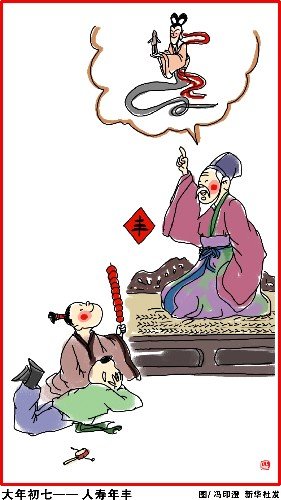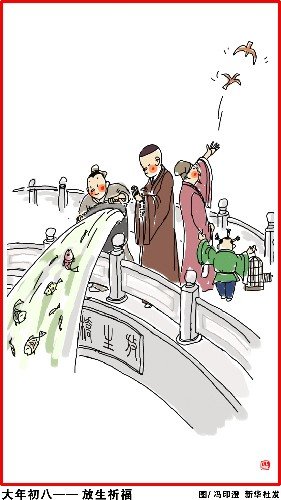初一到十五 春节习俗知多少
中国日报网 2018-02-16 10:00


大年初七:人寿年丰
The seventh day is commonly referred as the "day of man", and in most parts of China people will eat noodles as they symbolize longevity in Chinese culture.
初七是“人日”,中国各地人民都会吃面条,因为面条在中国文化里寓意长寿。

大年初八:放生祈福
The eighth day is believed to be the birthday of millet, an important crop in ancient China.
初八被认为是中国古代一种重要粮食——谷的生日。
According to folk proverbs, if this day is bright and clear the year will be a harvest year; however, if this day is cloudy or even rainy, the year will suffer from poor harvest.
根据民间俗语,这一天如果晴朗明亮就预示着大丰收,而如果多云甚至下雨就预示着今年会歉收。
Meanwhile, people also set free captive animals on this day, with a blessing for all living beings to flourish in the New Year.
此外,这一天人们还会放生动物,祝福新的一年里所有生物都繁荣兴旺,生生不息。

大年初九:玉皇天诞
The ninth day is called Ti Kong Dan, or the birthday of the Jade Emperor. There will be grand ceremonies in Taoist temples on this day, and ordinary families also offer sacrifices to the Jade Emperor.
初九被称为“天公诞”,即玉帝的生日。这一天,道家寺庙会举办华丽隆重的庆典,寻常人家也会祭祀玉帝。























 英语点津微信
英语点津微信 双语小程序
双语小程序












